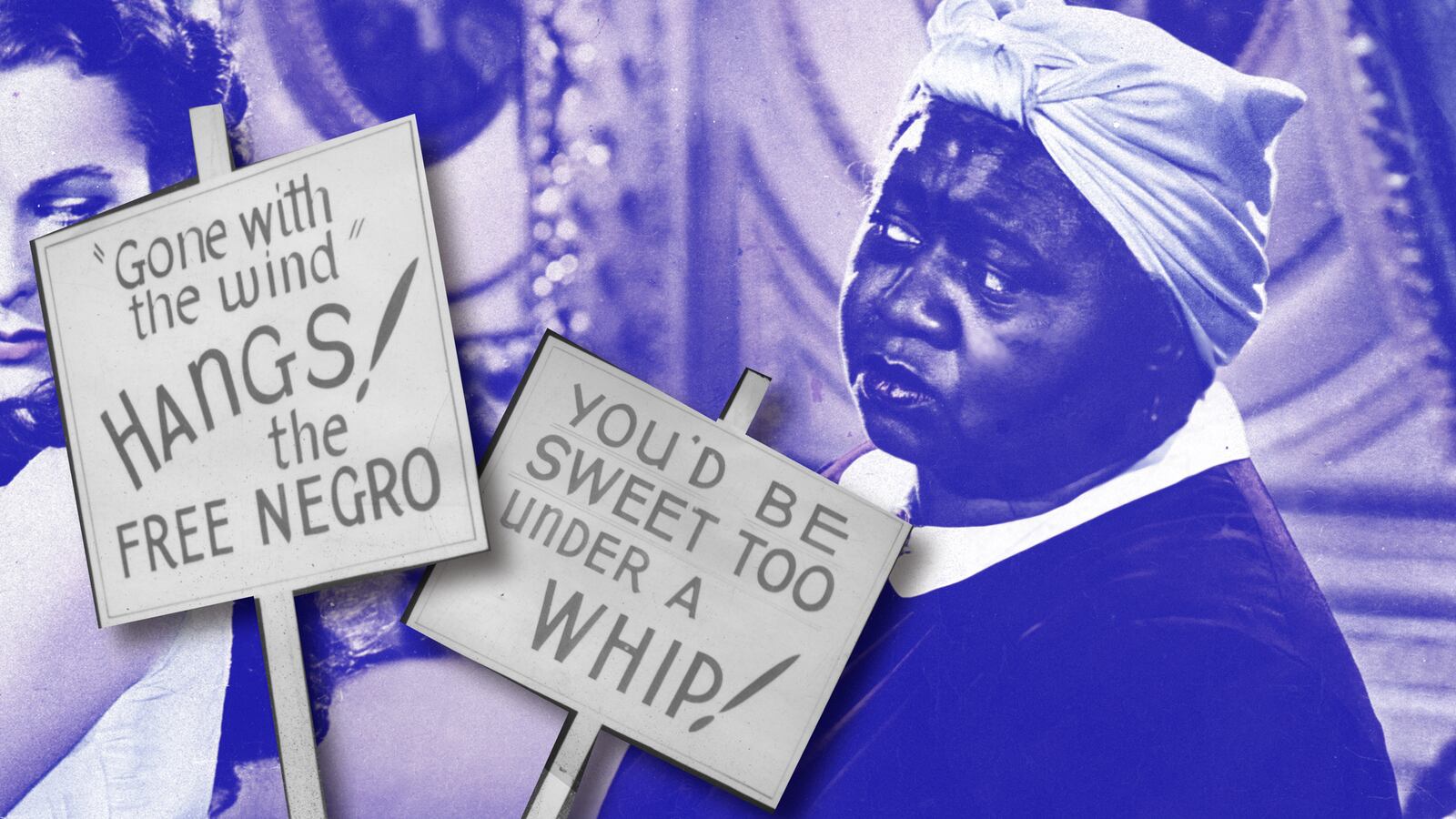Hattie McDaniel played a house slave and caregiver to the O’Hara family in the controversial Civil War epic Gone with the Wind. The Mammy archetype, which portrayed black women as docile and the punchline of jokes, originated in vaudeville and minstrel shows, eventually making its way onto the silver screen. The stereotype trickled down into everyday life and politics: Aunt Jemima pancake boxes originally featured the Mammy caricature and, in 1923, Congress considered erecting a Mammy memorial on the National Mall.
Because of the negative connotations behind the Mammy character, McDaniel faced criticism from black activists and writers. In a 1940 review for The Daily Worker, dramatist Carlton Moss tore into McDaniel’s character, arguing that she “loves this degrading position in the service of a family that has helped to keep her people enchained for centuries.”
To all of her critics, she famously said, “I’d rather make $700 dollars a week playing a maid than earn $7 a day being a maid.” Today, the trailblazing actress is embraced by black artists like Mo’Nique, who thanked McDaniel in her own Best Supporting Actress acceptance speech at the 2010 Academy Awards. Though the Mammy caricature is less common, the trope still shows up in entertainment today.






